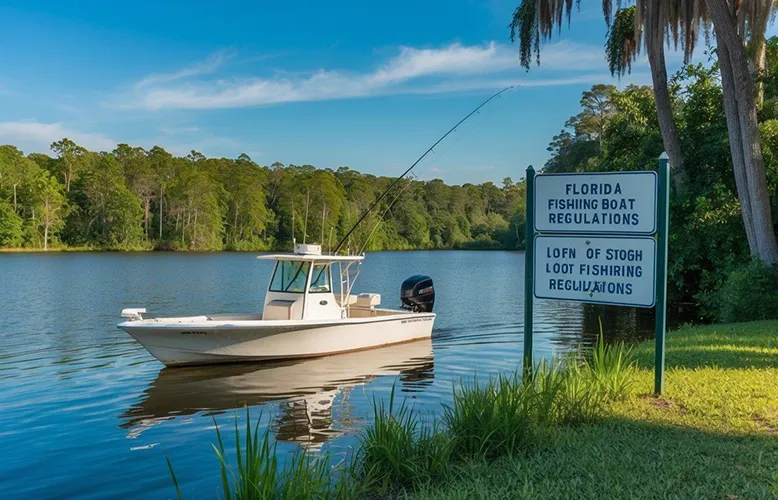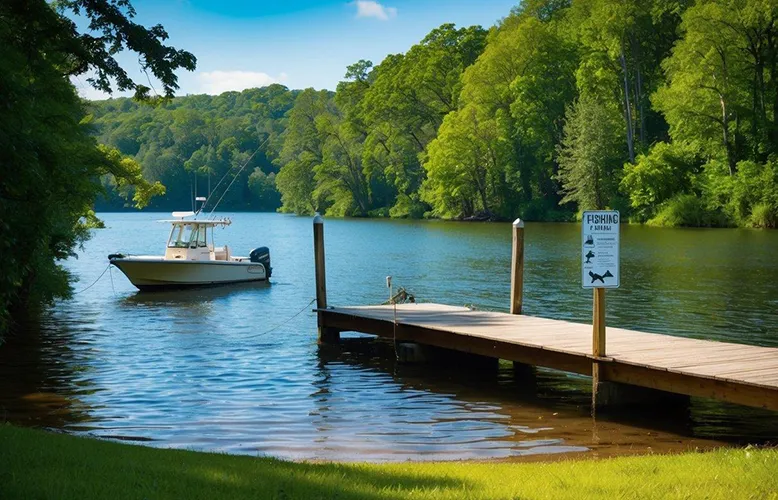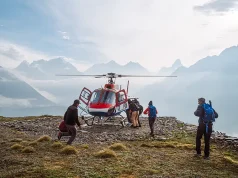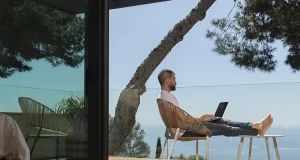Florida is famous for its bass fishing, and I’m excited to share what I know about the regulations and licenses you’ll need to enjoy this great sport. The state is home to some of the best bass fishing spots in the country, and I’ve spent countless hours exploring them. While Miami fishing is often associated with saltwater species, the surrounding freshwater areas also offer excellent bass fishing opportunities.

To fish for bass in Florida, you need a freshwater fishing license unless you’re exempt. These licenses are easy to get and help fund conservation efforts. The Florida Fish and Wildlife Conservation Commission (FWC) sets the rules for bass fishing, including size limits and catch limits. These rules change sometimes, so it’s smart to check them before you head out.
Florida’s lakes, rivers, and ponds offer amazing bass fishing opportunities. Many spots have fishing piers and boat ramps, making it easy to access the water. Whether you’re after largemouth bass, spotted bass, or other species, Florida’s diverse waterways have something for everyone.
Key Takeaways
- A freshwater fishing license is required for bass fishing in Florida
- Florida’s bass fishing regulations include size and catch limits
- Florida offers diverse bass fishing spots with easy access
Understanding Florida Fishing Regulations
Florida has strict rules to protect its fish and wildlife. I’ll explain the key regulations you need to know before casting your line in the Sunshine State.
Freshwater vs Saltwater Regulations
Freshwater and saltwater fishing have different rules in Florida. For freshwater, I need a license if I’m 16 or older, unless I’m fishing on my birthday. Bass fishing has special limits. I can only keep 5 black bass per day. In some places, like Lakes Lochloosa and Orange, there are new bass rules starting July 1, 2024.
Saltwater fishing also needs a license for most people over 16. The rules change based on where I fish and what I catch. Some fish have size limits, while others have catch limits. I always check the latest rules before I go out.
Protected Species and Conservation Efforts
Florida works hard to save its special fish. The Florida Fish and Wildlife Conservation Commission (FWC) makes rules to help. Some fish I can’t keep at all, like the shoal bass. If I catch one, I have to let it go right away.
The FWC also protects other wildlife near fishing spots. I need to be careful not to bother birds or turtles when I fish. Some areas have special times when I can’t fish to help animals breed. By following these rules, I help keep Florida’s nature healthy for years to come.
Legal Fishing Methods and Gear
I can use different ways to fish in Florida, but I need to follow the rules. Rod and reel fishing is okay in most places. In some areas, I can use nets or traps, but I have to check local rules first.
For freshwater fishing, I can use:
- Poles
- Lines
- Artificial lures
- Live bait
Some gear isn’t allowed, like explosives or drugs to catch fish. I also can’t use certain net types in some waters. It’s my job to know what’s okay where I’m fishing. If I’m not sure, I ask a local bait shop or check the FWC website.
Fishing Licenses in Florida
Florida requires fishing licenses for most anglers. These licenses help fund conservation efforts and protect our fisheries. Let’s look at the types of licenses, how to get them, and important fee information.
Types of Florida Fishing Licenses
I can tell you about several fishing license options in Florida. The main types are:
- Freshwater fishing license
- Saltwater fishing license
- Combination freshwater/saltwater license
There are also short-term licenses for 3 or 7 days. These are great for visitors or those who fish less often. Florida residents can buy annual licenses or lifetime licenses. Non-residents can get annual or short-term licenses.
Some special licenses exist too. These include:
- Snook permit
- Lobster permit
- Spiny lobster permit
How to Obtain a Florida Fishing License
I know getting a fishing license in Florida is easy. Here are the main ways:
- Online: Visit GoOutdoorsFlorida.com
- Phone: Call 888-FISH-FLORIDA (347-4356)
- In person: Go to a license agent or tax collector’s office
To buy a license, you’ll need:
- Your name and address
- Date of birth
- Social Security number
- Valid ID
Many bait shops and sporting goods stores sell licenses too. It’s smart to carry your license when fishing.
License Fees and Exemptions
I can share some key info about Florida fishing license fees. Prices vary based on the type of license and your residency status. Here are some examples:
- Annual freshwater (resident): $17
- Annual saltwater (resident): $17
- 3-day freshwater or saltwater (non-resident): $17
Some people don’t need a license. These include:
- Florida residents 65 or older
- Children under 16
- Active duty military home on leave
Disabled veterans and those with certain disabilities may qualify for free licenses. Always check the latest rules, as fees and exemptions can change.
Florida Bass Fishing Insights
Florida offers amazing bass fishing opportunities. The state’s diverse habitats and ecosystems, seasonal changes, and fish management practices all impact bass fishing success.
Habitats and Ecosystems
Florida’s waters provide ideal homes for bass. Lakes, rivers, and swamps across the state support thriving bass populations. The Everglades is a unique ecosystem where bass thrive in shallow, grass-filled waters. I’ve found that bass often hide near submerged logs, vegetation, and along shorelines.
Bass adapt well to different water types. In clear lakes, I look for them near underwater structures. In murky waters, I focus on shallow areas with cover. Florida’s warm climate allows bass to grow year-round, leading to trophy-sized fish.
Seasons and Weather Impact
Florida’s mild winters mean bass fishing is good all year. But seasonal changes do affect bass behavior. In spring, bass move to shallow waters to spawn. This is when I catch the most fish near shorelines.
Summer heat pushes bass to deeper, cooler areas. I target them early mornings or late evenings. Fall brings cooler temps, and bass feed heavily to prepare for winter. Winter fishing can be great, as bass group up in deeper spots.
Weather changes impact bass activity too. I’ve noticed they feed more before storms. Cloudy days often mean better fishing than bright, sunny ones.
Fish Stocking and Population Management
Florida actively manages its bass populations. The state stocks millions of bass in public waters each year. This helps maintain good fishing opportunities. I’ve seen how stocking can revive lakes with declining bass numbers.
The Florida Fish and Wildlife Conservation Commission closely monitors bass populations. They set catch limits to prevent overfishing. Some waters have special regulations to protect trophy bass.
Fish stocking isn’t just about numbers. Biologists choose the right bass species for each water body. This ensures the stocked fish will thrive in their new home. I appreciate how these efforts keep Florida’s bass fishing world-class.
Where to Fish in Florida

Florida offers endless fishing opportunities. Lakes, rivers, and coastal waters teem with bass and other prized catches. Many spots have easy access for anglers of all skill levels.
Popular Bass Fishing Locations
I recommend Lake Okeechobee for world-class bass fishing. This massive lake in south Florida is known for trophy largemouth. The St. Johns River system is another top spot, with excellent fishing from Jacksonville to Orlando. For peacock bass, I suggest fishing in Miami’s urban canals.
Lake Tohopekaliga (Lake Toho) near Orlando is famous for big bass. The Kissimmee Chain of Lakes also offers great action. In north Florida, Lake Talquin and Lake Seminole are bass hotspots. The Everglades canals provide unique fishing in a wild setting.
Fish Camps and Access Points
Fish camps give easy lake access and often rent boats. I like Camp Mack on Lake Kissimmee for its old Florida charm. Jolly Gator Fish Camp on the St. Johns River has a boat ramp and bait shop.
Many lakes have public boat ramps. Lake Harris in the Harris Chain of Lakes has several good access points. For bank fishing, try the Camp Lester pier on Lake Toho.
State parks offer fishing access too. I enjoy Myakka River State Park for its scenic beauty and good bass fishing. Coastal areas like Honeymoon Island State Park let you fish from shore for saltwater species.





